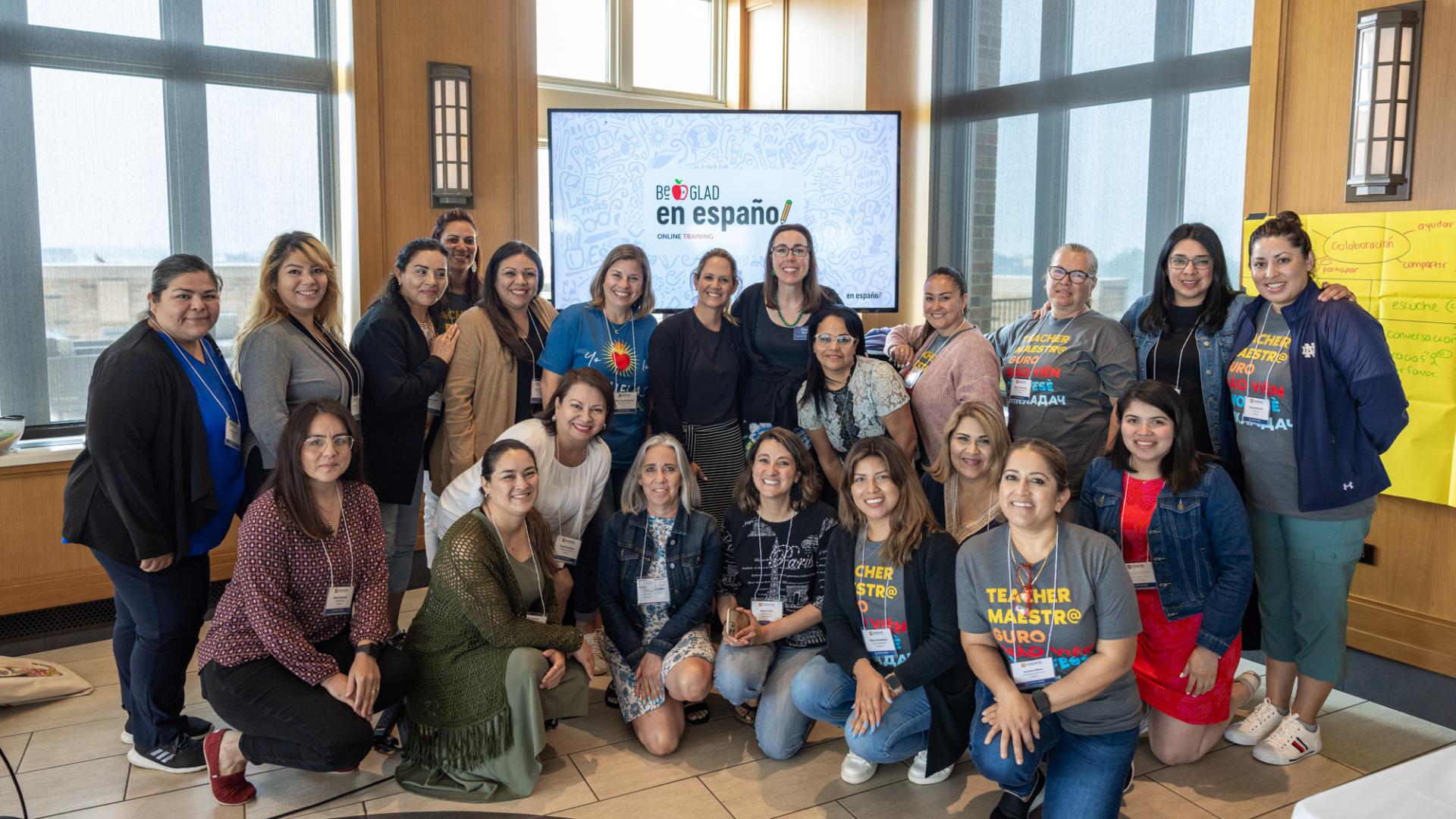“La palabra señal es, ‘comprensible.’ Diga conmigo ‘comprensible.’” Comprehending every instruction, 24 teachers delved into their group’s challenge, creating a concept attainment chart for key characteristics of organisms, a typical grade four science standard. For three days at the end of June, this group of elementary school teachers engaged professionally in Spanish—the language in which they pray, think, and instruct students in their Catholic schools.
Through its varied preparation programs, fellowships, conferences and summits, ACE forms thousands of teachers in a given year. But at this year’s Adelante Conference hosted by the Catholic School Advantage (CSA) team, ACE teacher formation sounded different than usual. The conference theme, Propelling Multilingual Learners Toward Success: Teaching Content and Language in Every Subject Area, attracted 95 Catholic school teachers from across the country who teach culturally and linguistically diverse students. In addition to the two tracks offered in English, one for early elementary teachers and the other for upper grade teachers, the Adelante Conference offered a track exclusively in Spanish, serving teachers in dual language Catholic schools as well as teachers whose mother tongue is español.

“We believe multilingualism is an enormous asset. We describe it to students as a superpower,” explains Dr. Katy Lichon, director of the Catholic School Advantage team, which hosts the Adelante Conference each year. “If we genuinely value language skill sets, then it only makes sense that we work to offer linguistically responsive professional development to teachers working in bilingual settings across the country.”
Hailing from dual language Catholic schools from Baltimore to Los Angeles and everywhere in between, the educators engaging in the Spanish track worked with Ingrid Fleury, an educator with 19 years of experience as a dual language teacher and instructional coach for the BeGLAD (Guided Language Acquisition Design) team, who helped deliver the professional development for the Adelante Conference.
“Ingrid teaches in Texas, but she’s originally from Venezuela, just like me,” noted Bixis Colina, a first-grade dual language teacher in attendance. “I took great pride knowing she was a paisana and I loved hearing her phrasing and classic Venezuelan expressions. She was a dynamic presenter that understands the important elements and nuances of teaching in Spanish. I learned so much!”

The need to offer teachers high-quality professional development in Spanish was one of the most important findings from Notre Dame’s 2020 Survey of Dual Language Catholic Schools. The vast majority of dual language Catholic schools are Spanish-English programs and many of the teachers serving in those schools are native speakers of Spanish. According to Katy Lichon, “Creating more opportunities in Spanish for teachers to develop themselves professionally, like the opportunity created at the Adelante Conference, is a direct response to the expressed need of our dual language schools across the country.”
“I was so grateful for the opportunity to go to a teaching conference offered in Spanish. For me it meant love, respect, and admiration for our language and culture,” commented Flory Vargas, a teacher at Bishop O’Hara Catholic School in Portland, Oregon.
Added Ruby Armendariz from St. Bernard Dual Language School in Los Angeles, “I loved getting to know and collaborate with other Spanish-speaking teachers. It was such a valuable experience as a teacher and as a Mexican who is proud of my language. Our students need well trained dual language teachers and programs like this help us to stay ahead of the curve!”

